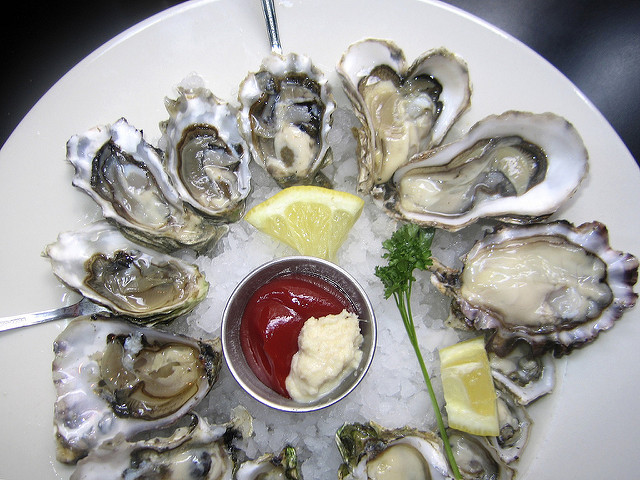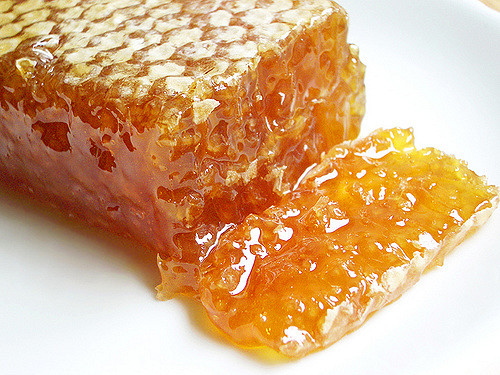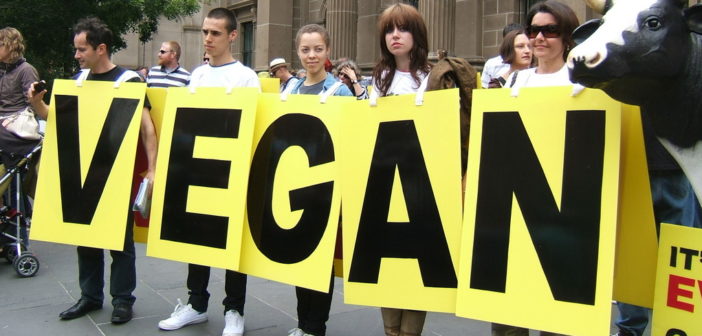You may have heard the term “apologist vegan” or “vegan apologist.” Maybe you’ve even been called one. But what is it, exactly?
I googled around a bit in search of descriptions or definitions, and the gist of it seems that a vegan apologist is a vegan who caters too much about how non-vegans feel, and who is able to apologize their non-vegan behavior, by coming up with reasons non-apologist vegans (I’ll call them “hardliners” in this post) do not find convincing. Another telltale sign of being an apologist, apparently, is to apologize for the behavior of some other vegans to meat eaters. For instance, an apologist vegan would explain that some vegans are really too militant or intolerant. This, again, is a no go for hardliners. In the eyes of the hardliners, there is no excuse for animal abuse, no excuse for not going vegan right now, no excuse for any exception. No excuse for excuses. The hardliners believe, I think, that it is only they who unconditionally take the side of the animals, and that apologists tolerate behavior of others that should not be tolerated.
As a vegan, should you always reject and refute the reasons other people give for not being (entirely) vegan? I think not. I think “making apologies” – the thing so frowned upon by hardliners – is often a good thing. There are two reasons for that, one is about process, one is about content.
The process reason for taking seriously other people’s reasons for not being vegan, understanding them, sometimes accepting them, is that an attitude where you understand where people are coming from and are not demanding something they see as impossible, is much more likely to get them to be open and listen to you. Hardline vegans seem to think that apologist vegans care too much about not hurting other people’s feelings. I understand that sentiment, and I think that sometimes we go too far in the direction of not trying to offend. But that’s not the only thing this is about. This is also about effectiveness. If you tell a person they have to do something, that there is no excuse for them not to change, that all their reasons are bullshit… well, in many or most cases you’ll just alienate that person.
The content reason for being an apologist vegan, so to speak, is that people may have (at the very least in their own perception) valid reasons not to be vegan (and certainly, not entirely vegan). To understand some of the arguments the “apologist vegans” use to excuse non-vegans, take a look at the bingo meme below. For a selection of these “apologist arguments”, I did the following: between brackets I made the objection a little bit clearer, where necessary (just in case the few words on the card are not clear enough to you). Then I briefly wrote out what I call the “hardline vegan argument” (HVA). This is what I think the maker of the bingo card (obviously a non-apologist) had in mind. Then I’ll spell out what I call the “apologist vegan argument” (AVA), which indeed explains why this particular objection against (fully consistent) veganism may hold some water.
As you will see, the hardline vegan argument is usually very binary and black and white in nature. If something is derived from animals or involves animal use, it is not vegan, period. The apologist vegan argument is more nuanced.
Backyard eggs (“It’s fine if people eat vegan except for eggs from chickens from their own backyard.”)
Hardline vegan argument (HVA): Eggs are animal products. Vegans don’t eat animal products. No exceptions.
Apologist vegan argument (AVA): While there certainly may entail some problems, backyard eggs may be the single least problematic animal product, and conceding that they are often not very problematic at all, may increase the credibility of our position towards non-vegans, as well as making the transition a bit easier for them.
Part time vegan (“Part time vegans are taking steps, and are helpful for the animals.”)
HVA: There’s no such thing as a part time vegan. You’re vegan or you’re not. When people still eat non-vegan meals, they are still part of the problem and still contributing to animal suffering.
AVA: A part time vegan is part of the solution, by having a lower suffering footprint, and by helping to push demand for vegan products, thus helping to make going vegan easier for everyone (due to increased availability). Moreover, part time vegans are much closer to going vegan than omnivores. They should be encouraged.
Note that these arguments also work for the “baby steps” objection (which apparently the maker of the bingo card finds so objectionable that they put it in the center).
Service dogs (“Vegans shouldn’t be against stuff like dogs that help the blind.”)
HVA: Using an animal is not vegan.
AVA: Service dogs are very helpful for people with disabilities, and it’s certainly not obvious that they are mistreated or suffering. This issue should not be a priority. Speaking out against service dogs may easily come over as very harsh, and does not contribute to a positive image of vegans and veganism.

Are oysters vegan? What if they aren’t sentient? Image credit Jennifer Durban, CC BY-SA 3.0.
Oysters are vegan (“Oysters aren’t really animals, we can eat them.”)
HVA: Oysters are animals. Not vegan.
AVA: There seem to be reasonable arguments that oysters are not sentient, and in this sense are more like plants than animals. Conceding this point, or leaving this question open, may help us come across as reasonable, open-minded, non-dogmatic people. If we are reasonable and open-minded, many others will be much more likely to actually have a conversation with us.
Personal choice (“People still have the freedom to eat what they want. We shouldn’t push our beliefs on them.”)
HVA: Our actions are not a personal choice when other beings are involved and suffer because of those choices.
AVA: It’s good to explain that eating animal products or not is definitely not a choice on the level of something like choosing the color of your wallpaper. However, people are indeed free to eat what they want to eat. I think that by seeing things like this, our communication towards non-vegans may be less pushy, judgmental or restrictive, so that there is more chance they have the mental space to freely consider these serious issues.
Everyone can’t be vegan (“We can’t expect the whole world to go vegan.”)
HVA: There is no excuse not to go vegan, everyone can do it.
AVA: While many people in the West are in a perfect position to go vegan, it may be good to realize – and to show that we understand – that there are people for whom going vegan is less easy than for others. Some people are way less privileged than others, and are dealing with financial problems, family issues, health issues, allergies, cultural issues, food deserts, etc. While these barriers may not make it strictly impossible to go vegan, they may at least make it (much) more difficult.
Humans are oppressed too (“Animals are not the only issue, let’s not lose sight of other issues.”)
HVA: Human suffering pales in comparison with what we are doing to animals
AVA: The scale at which animals suffer and die at human hands is indeed massive and incredible. But that can never justify that anyone would ignore human suffering, or prioritize animal suffering at the cost of everything else.
Lab created meat is vegan (“Clean meat, created from animal cells, does not entail suffering.”)
HVA: It’s not vegan, because it’s an animal product. Not only does the production of lab-grown meat require a biopsy from an animal, it also requires an animal growth medium. Moreover, we don’t need “clean” meat, as there are so great meat and dairy alternatives these days.
AVA: The biopsy is pretty much harmless. Moreover, if in the future we are more accepting of GMO technology in the production of lab-grown meat, we can make eternally self-replicating cells, so that we only need to take the biopsy once. As for the medium, we are developing – and will use in the future – animal free growth mediums. In any case, clean meat has the potential to prevent massive amounts of animal suffering. As for not needing it: if plant based foods are sufficient, then why is not everyone vegan yet? Apparently there are still things that make the transition to veganism difficult for many, and we should try everything we can to overcome them.

Is honey vegan? Image credit bionicgrrrl, CC BY-SA 3.0.
Honey is vegan (“Let’s not mention honey and consider it vegan, rather than talking about details.”)
HVA: Honey is an animal product and therefore not vegan.
AVA: Technically honey is not a vegan product, but focusing on this will make veganism seem less credible and more difficult, as it’s such a natural and healthy product in most people’s eyes. It’s good to a least not always volunteer the information that honey is not vegan.
Don’t say rape when referring to animals (“The word rape in the context of dairy is a turn-off”)
HVA: But dairy IS rape.
AVA: Dairy may indeed be similar to rape in non-trivial ways, but a farmer artificially inseminating a cow has a completely different intention than a rapist. Also, public acceptance of rape and artificial insemination of animals is completely different. Therefore it is not strategic to compare the one with the other. This kind of comparison will often alienate non-vegans. It is, however, useful in many situations to point out to people that cows don’t get pregnant every year without human interference.
Vegetarian is better than omnivore (“We should applaud people becoming vegetarian.”)
HVA: A vegetarian is still part of the problem. There is so much suffering involved in the production and consumption of eggs and dairy.
AVA: Eggs and dairy certainly are problematic on different fronts, but vegetarians are doing most of the work, having a much lower suffering footprint, and helping to increase demand for and supply of meat alternatives. Besides, they might be well on their way to going vegan.
This is why people hate vegans (“Vegans shouldn’t do this or say this, it makes people dislike us.”)
HVA: Vegans shouldn’t be critized for the way they communicate or for the methods they use. We’re pointing out very serious stuff. Anything goes, basically.
AVA: Conceding the point that there certainly are vegans who are communicating in a less than optimal manner, or that there are methods that might be counterproductive, may again lead the non-vegan to take you a bit more seriously and close the gap between us and them. If you just sanction anything vegans do, you may be considered to be “one of the bad ones,” and the other party will not be willing to keep the dialogue open.
Only eat animal products from the dumpster (“I’m vegan except when I find free animal products in the trash”.)
HVA: Not vegan.
AVA: Freegans (people who only eat discarded animal products) are not contributing to demand. They may have their own convictions for being freegan, like not wasting food. They’re a part of the solution, not the problem.
I hope you can see that many of these apologist vegan arguments do hold water, both in terms of content and in terms of process. Even if “apologist” is used as a term of abuse, I definitely won’t shy away from trying to find truth and valid arguments in non-vegans’ claims, wherever I may find them. That’s because I want to build rapport with them, in the hope I can somehow help them make more ethical choices. And because, frankly, sometimes they do have a point.
Of course, we should not find excuses for everything, or be too tolerant of harmful things. But we should always take into account where people are coming from, what time they are living in, what the norms of the day are, before we judge and condemn others. If we do that, we will see quite easily why not everyone is doing what we are doing… yet.
Featured image: vegans holding a sign at a demonstration. How does strategy factor into your attitudes and positions about veganism, and how does that effect the success of the larger animal protection/liberation movements? Image credit Andrew France, CC BY-SA 3.0.







7 Comments
This is precisely why more animals than ever before are being tortured and killed for unnecessary palate pleasure; because “vegans” keep telling everyone it’s okay to torture and kill animals.
Meat consumption broke all records in 2018, and egg purchases have skyrocketed thanks to the promotion of baby steps and “reducing.”
Unless and until we promote the unequivocal end to speciesism and the animal use and abuse that occurs as a result of it, nothing will improve for the animals.
But for apologists, it’s not about the animals, is it? It’s about their popularity, how to make sure people like them. What a shame for the lives lost every day to this sorry movement.
Veganism is very easy when you consider animals instead of yourself and how you appear. Veganism isn’t about the people. It is about ending the horrifying exploitation, torture and killings of our fellow Earthlings.
Veganism is a new way of fitting into the natural web of life on earth. It is a philosophy that recognizes humans as a species of great ape. We are simply another animal, another Earthling.
Veganism refutes the unjust, and unappointed, authority or dominion of humans over all other lives.
The Vegan Movement is a justice movement to affect the change we want to see in the world. The only difference between those who are already vegan, and those who have not yet connected their behavior with their ethics, is one decision. Vegans have made the decision that we will not use animals. That’s it!
When “vegans” refer to other Vegans as angry or militant, I immediately know they just don’t get how badly the ANIMALS ARE SUFFERING !!!
Every day that goes by that you choose not to be vegan, you are acticely contributing to the torture, enslavement, sexual exploitation and slaughter of non-human animals. No one needs to participate in these inhuman atrocities, and it’s never been easier to end your own stake in unspeakable cruelty and go vegan today. Once you know better, you do better.
There is A LOT wrong with being an apologist vegan. We cannot sit here and coddle those inflicting pain upon innocent beings. Paying for murder is equal to committing murder. We cannot sit idly by to keep people comfortable.
The crazy thing is that we’ve actually now found that plants DO infact feel pain, all thanks to this post.